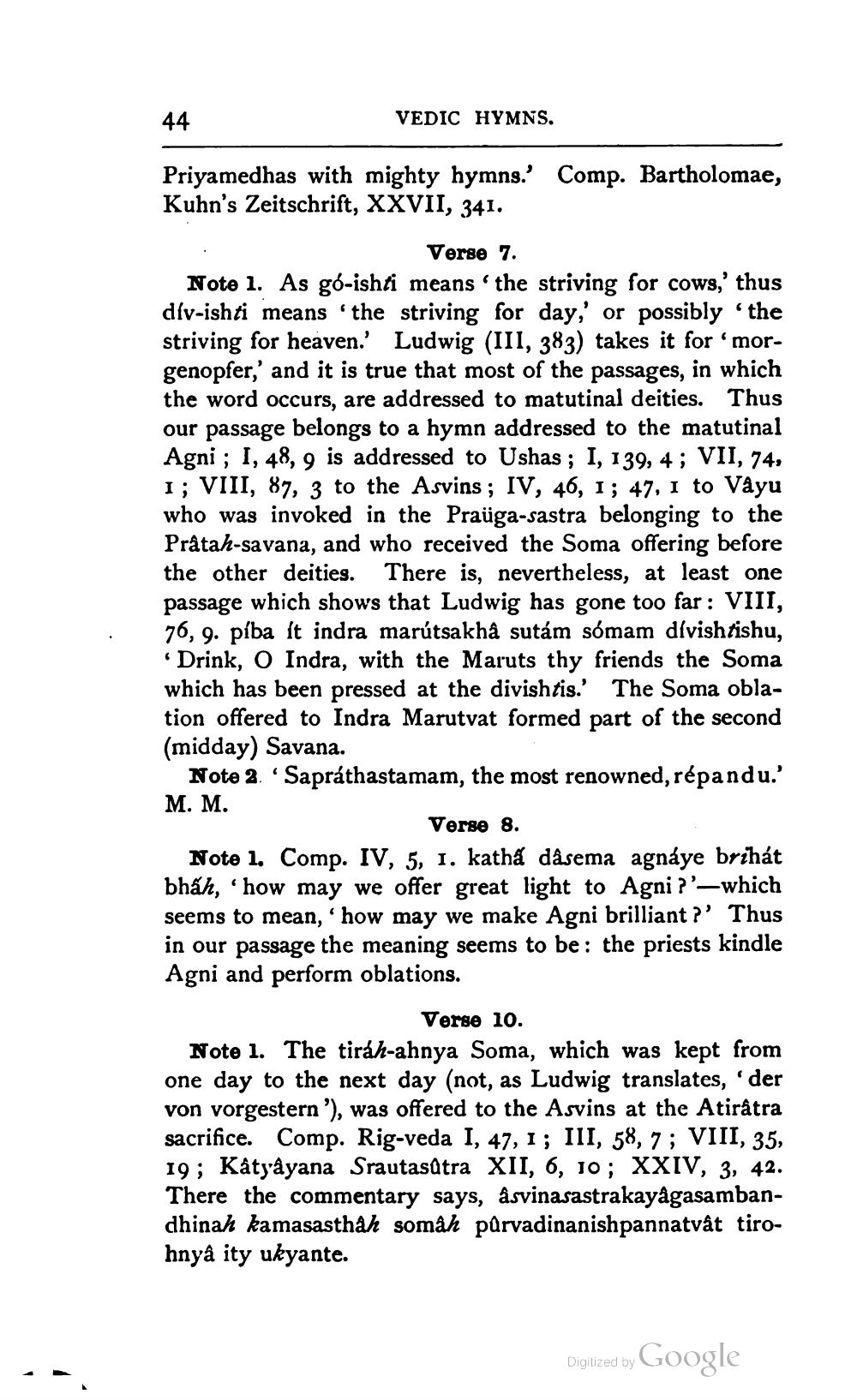________________
44
VEDIC HYMNS.
Priyamedhas with mighty hymns.' Comp. Bartholomae, Kuhn's Zeitschrift, XXVII, 341.
Verse 7. Note 1. As gó-ishti means 'the striving for cows,' thus dív-ishti means 'the striving for day,' or possibly the striving for heaven.' Ludwig (III, 383) takes it for morgenopfer,' and it is true that most of the passages, in which the word occurs, are addressed to matutinal deities. Thus our passage belongs to a hymn addressed to the matutinal Agni ; 1, 48, 9 is addressed to Ushas ; I, 139, 4; VII, 74, 1; VIII, 87, 3 to the Asvins ; IV, 46, 1; 47, 1 to Vayu who was invoked in the Praüga-sastra belonging to the Prâtah-savana, and who received the Soma offering before the other deities. There is, nevertheless, at least one passage which shows that Ludwig has gone too far: VIII, 76, 9. píba ít indra marútsakhâ sutám sómam divishtishu,
Drink, O Indra, with the Maruts thy friends the Soma which has been pressed at the divishtis.' The Soma oblation offered to Indra Marutvat formed part of the second (midday) Savana.
Note 2. Sapráthastamam, the most renowned, répandu.' M. M.
Verse 8. Note 1. Comp. IV, 5, 1. katha dasema agnaye brihát bháh, 'how may we offer great light to Agni ?'—which seems to mean, “how may we make Agni brilliant ?' Thus in our passage the meaning seems to be: the priests kindle Agni and perform oblations.
Verse 10. Note 1. The tiráh-ahnya Soma, which was kept from one day to the next day (not, as Ludwig translates, der von vorgestern '), was offered to the Asvins at the Atirâtra sacrifice. Comp. Rig-veda I, 47, 1 ; III, 58, 7; VIII, 35, 19; Katyayana Srautasátra XII, 6, 10; XXIV, 3, 42. There the commentary says, åsvinasastrakayågasambandhinah kamasasthåh somâh parvadinanishpannatvât tirohnya ity ukyante.
Digitized by Google




